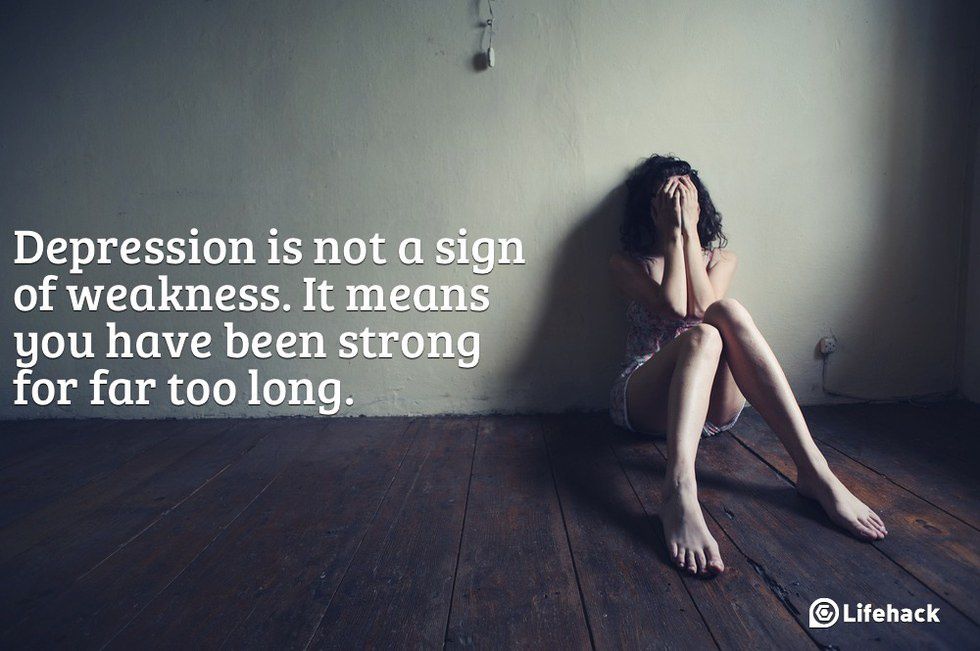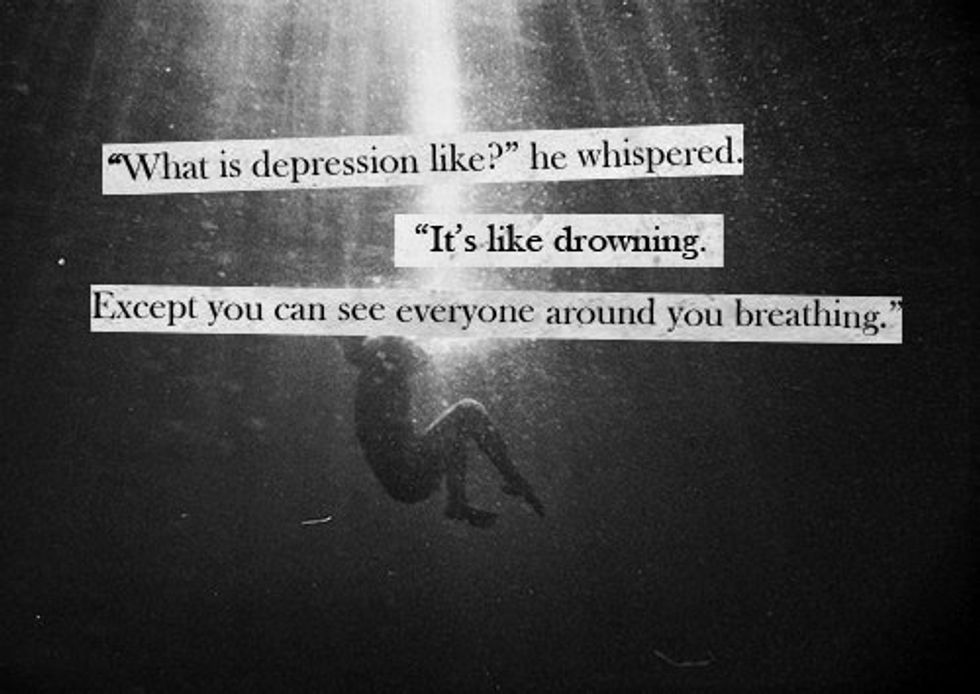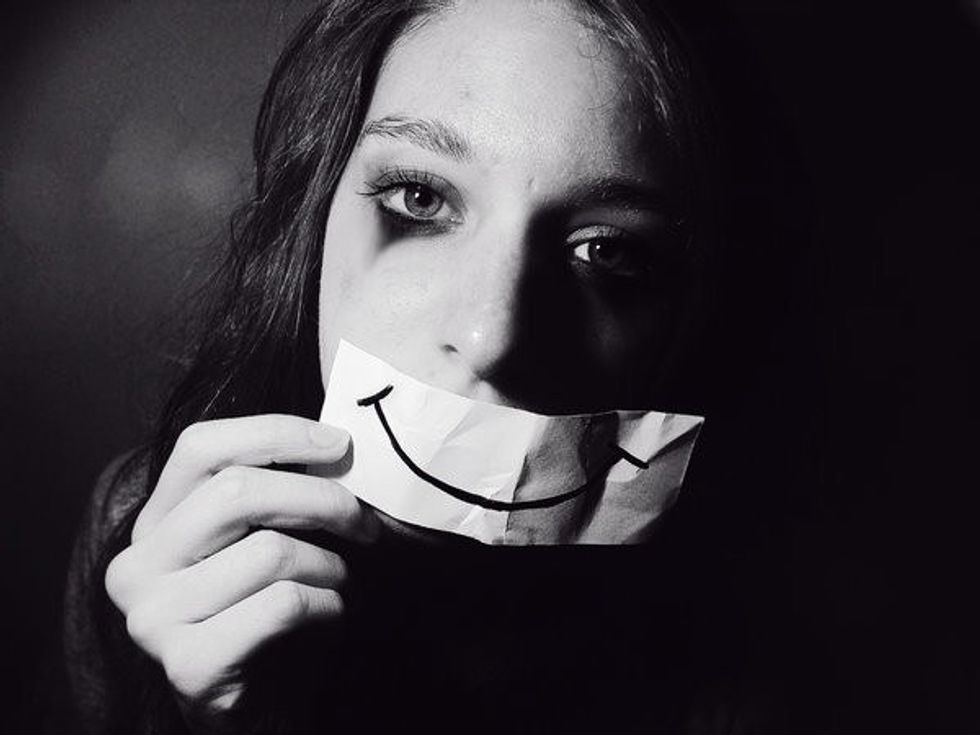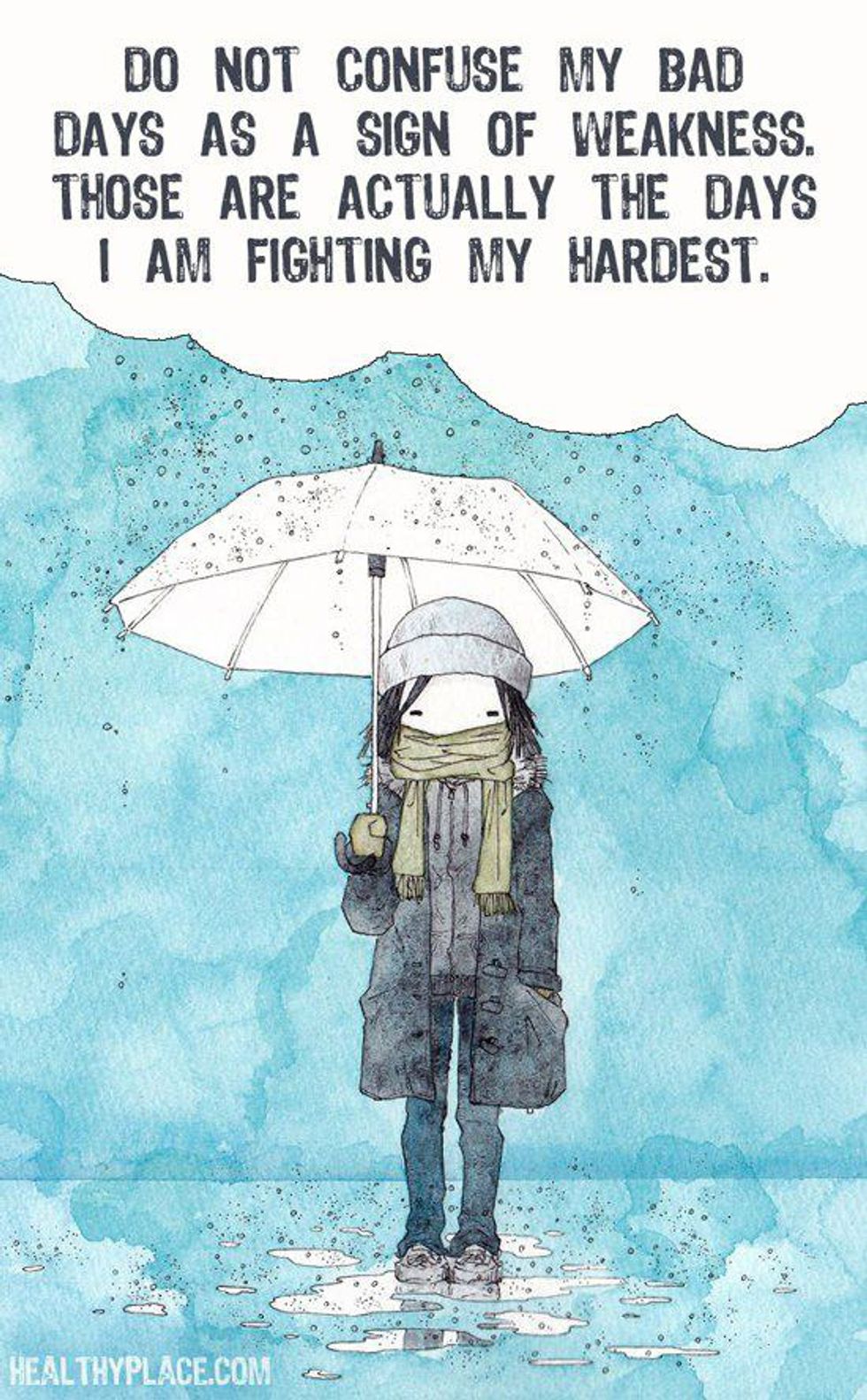Let’s say I have a broken leg. Someone wasn’t paying attention to where they were going and caused me to fall and fracture my leg. I went to the doctor, was put in a cast and on crutches, and sent on my way.
I didn’t ask for or choose to have the injury. I went to the doctor so they could help me fix my problem, was given the crutches and cast to help me get better, and outsiders know I am in the process of healing even though they can’t see it happening on the inside.
Is someone going to tell me that even though I went to the doctor, am wearing a cast, and am hobbling around on crutches that I’m not helping myself because it doesn’t look like how their friend healed from a broken arm? Is someone going to tell me to shake it off by ditching the crutches and starting to walk on my leg before it’s healed because it looks okay from the outside and I just have to face it to get better?
Probably not. Because it’s insanely ludicrous and ignorant. Yet that is how mental illnesses are treated by so many people who haven’t experienced it themselves. This is what loved ones should know about battling mental illness:
1. I fight more battles every day just to be okay than you will probably ever understand.
Perhaps most importantly, know this: I did not choose my demons. I have a real illness. There are real imbalances in the chemicals in my brain, and unless you think I am a sorceress, I cannot give those to myself. And why would I? So to those that say it’s “all in my head,” you would be right: my brain is sick, it does not have the right chemicals to help me function like you. Foundationally, it doesn’t function in the same way you take for granted in your day to day.
Struggling with my mental illnesses means that I fight to get out of bed every day because I am petrified down to my toes of what battles I’m going to face. It means dreading opening my eyes because I can already feel the pressure of anxiety sitting heavily on my chest and the suffocating cloud of depression settling over me before I’ve even rolled out of bed. It means looking at myself and never ceasing to question what I’m doing and if the incessant pain is all really worth it. It’s grieving something so wholeheartedly that it consumes you – but not knowing what. It’s a hyper intense need to excel in everything I do that is quickly swallowed by depression asking ‘why?’ and ‘who cares anymore?’ and the sense of emotional drainage and physical exhaustion that simultaneously sweeps over me. It’s living in a tornado of emotions and knowing there’s only so much you can do to stop the spinning. And resenting every moment you can’t control what your sickness is doing to you because there’s only so much you can do to alter your brain’s chemicals.
But it’s also tackling these struggles head on because you have to just get through the next 10 minutes, the next hour, the next day, and hoping that the fight will get easier or the path less fearsome along the way--and carrying that blind seed of hope despite everything trying to extinguish it.
2. I am doing everything I can to help myself get better.
Everyone has different methods, techniques, and activities that help curb their symptoms, and those approaches may not be what you think I should be doing, but they are what I know help me. Medication, seeking therapy, building an understanding support system, participating and getting involved in activities outside my comfort zone--all of these show me I am not a victim of my mental illness and help me manage my mental and emotional well-being. No one person has the same cocktail of strategies that improves their mental health, but each person knows what will work for themselves--not you.
3. I’m not ashamed of taking medication to facilitate the chemicals in my brain, so don’t act like you are.
I know so many people who are shocked at how open I am about taking medication for my mental illness, but why should I try to keep it hush hush? It isn’t taboo to take medication for chronic heartburn, or for the flu, or to lessen the symptoms and pain of a period, so why would taking medication that helps regulate the chemicals in my brain be any different than pills that help regulate other parts of my body? The only shameful parts of me taking medication are the reactions of narrow-minded people who are shocked or offended by my openness. And that brand of toxicity has no place in my life.
4. You don’t have to understand what triggers me or my reaction to it.
People who battle a mental illness have all different kinds of triggers, large and small, that can set them off immediately or can add up until something nonsensical brings all of the buried trauma to the forefront in one big explosion. For many, we know that what causes intense anxiety or depression for us is irrational, but the kicker is: our sick brain is telling us to fear it and that overrides and envelops the rational part of our brains that is telling us the fear is irrational. It’s the result of a chemical imbalance, so no matter how many times others tell us the fear is baseless or tell us it’s going to be okay, the message isn’t going to get through because our brain is sick. That’s why we go to therapy, take medication, practice relaxation and other techniques, and do everything we can to resurrect some calm in our lives.
5. It’s not your fault.
The world is full of what-ifs, and there is no closure in pointing blame. Genes can be pre-disposed to developing certain mental conditions, and certain factors can help develop them, but it happened and there is no looking back and saying what if.
6. My inner monologue is worse than anything you could throw at me.
You can’t understand the feeling of being trapped in your own head, feeling like you are two people sharing the same space after one usurped control of your emotions, feeling the incessant wrestling within yourself, or even trying to futilely exert control over your brain’s chemicals unless it is something you’ve personally experienced. And we all fight our battles at different levels with varying degrees of success day to day, but some of us have given up hoping you will ever acknowledge that our realities are just as real as your reality.
And I would wrap up by saying one last thing: I can only hope that one day I won’t have to use elementary analogies and an abridged list of thoughts to effectively communicate with those who haven’t suffered from a mental illness or who haven’t even tried to walk a step in the complex shoes of someone who has. We struggle enough without adding the lack of understanding or support from those closest to us.


























